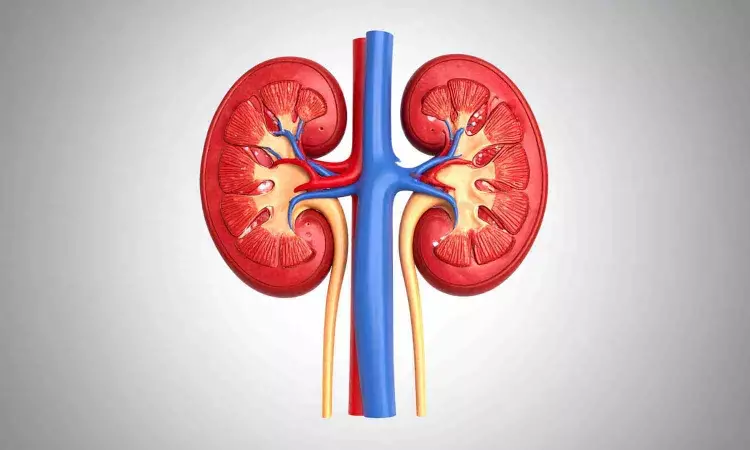- Home
- Medical news & Guidelines
- Anesthesiology
- Cardiology and CTVS
- Critical Care
- Dentistry
- Dermatology
- Diabetes and Endocrinology
- ENT
- Gastroenterology
- Medicine
- Nephrology
- Neurology
- Obstretics-Gynaecology
- Oncology
- Ophthalmology
- Orthopaedics
- Pediatrics-Neonatology
- Psychiatry
- Pulmonology
- Radiology
- Surgery
- Urology
- Laboratory Medicine
- Diet
- Nursing
- Paramedical
- Physiotherapy
- Health news
- Fact Check
- Bone Health Fact Check
- Brain Health Fact Check
- Cancer Related Fact Check
- Child Care Fact Check
- Dental and oral health fact check
- Diabetes and metabolic health fact check
- Diet and Nutrition Fact Check
- Eye and ENT Care Fact Check
- Fitness fact check
- Gut health fact check
- Heart health fact check
- Kidney health fact check
- Medical education fact check
- Men's health fact check
- Respiratory fact check
- Skin and hair care fact check
- Vaccine and Immunization fact check
- Women's health fact check
- AYUSH
- State News
- Andaman and Nicobar Islands
- Andhra Pradesh
- Arunachal Pradesh
- Assam
- Bihar
- Chandigarh
- Chattisgarh
- Dadra and Nagar Haveli
- Daman and Diu
- Delhi
- Goa
- Gujarat
- Haryana
- Himachal Pradesh
- Jammu & Kashmir
- Jharkhand
- Karnataka
- Kerala
- Ladakh
- Lakshadweep
- Madhya Pradesh
- Maharashtra
- Manipur
- Meghalaya
- Mizoram
- Nagaland
- Odisha
- Puducherry
- Punjab
- Rajasthan
- Sikkim
- Tamil Nadu
- Telangana
- Tripura
- Uttar Pradesh
- Uttrakhand
- West Bengal
- Medical Education
- Industry
Donor kidneys perform better after machine perfusion, reveals research

A long-term follow-up study from a consortium of six European countries, coordinated by the department of Surgery of the University Medical Center Groningen (UMCG) shows that, even 10 years after transplantation, deceased-donor kidneys performed better when they were preserved on a machine between organ retrieval and transplantation than those that underwent static cold storage before implantation. These remarkable results were published in the New England Journal of Medicine on November 6, 2025.
Machine Preservation Trial
Corresponding author Cyril Moers, scientist and transplant surgeon at the UMCG, explains: “These exciting results originate from a unique long-term follow-up study of the landmark Machine Preservation Trial, which was also coordinated from Groningen. That clinical study found that cold machine perfusion of deceased-donor kidneys (preserving them on a pump) yielded better short-term transplant outcomes than static cold storage. Kidney function would start earlier in recipients, and after 1 and 3 years more kidneys were still functional. Those early results were also published in the New England Journal of Medicine, in 2009 and 2012.
Following these findings, cold machine perfusion has become the organ preservation method of choice in many countries around the globe, leading to better kidney transplantation outcomes for countless patients. Nevertheless, short-term benefits of new technology often level out and disappear in the long run. Therefore, scientists, clinicians, and policy makers urged us to investigate whether the superior outcomes of machine perfusion would persist in the long-term, which could support even wider implementation and reimbursement of this method.”
More kidneys still functional after 10 years
Hence, the investigators contacted all 55 transplant centers in the six European countries where the 818 kidneys from the Machine Preservation Trial had been transplanted, to find out how all these patients and kidneys were doing 10 years later. They found that, overall, more kidneys were still functional when they had been machine perfused than those that had undergone static cold storage (79% vs. 73%). This difference was even more pronounced for kidneys that had a below-average quality because they were retrieved from so-called ‘expanded-criteria donors’ (70% vs. 60% still functional after 10 years). Patient survival and organ function of kidneys that still worked 10 years post-transplant were similar between the two study groups.
In summary, these long-term findings have provided additional support for the superiority of cold machine perfusion over static cold storage for the preservation of deceased-donor kidneys.
Cold machine perfusion
Cold, or ‘hypothermic’ machine perfusion is a technique by which a cold (1-10C) organ preservation solution is constantly recirculated through the blood vessels of the donor kidney. Most machines are transportable and easy to use. Typically, machine perfusion is initiated at the donor hospital immediately after organ retrieval and continued until shortly before the transplantation commences in the transplant center.
Reference: Donor kidneys perform better after machine perfusion, Universitair Medisch Centrum Groningen, Journal: New England Journal of Medicine, DOI 10.1056/NEJMc2406608
Dr Kamal Kant Kohli-MBBS, DTCD- a chest specialist with more than 30 years of practice and a flair for writing clinical articles, Dr Kamal Kant Kohli joined Medical Dialogues as a Chief Editor of Medical News. Besides writing articles, as an editor, he proofreads and verifies all the medical content published on Medical Dialogues including those coming from journals, studies,medical conferences,guidelines etc. Email: drkohli@medicaldialogues.in. Contact no. 011-43720751


